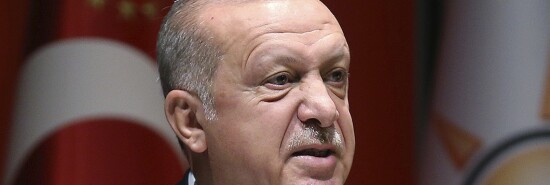
Turkey’s Erdogan oscillates back toward the West
Aidan Springs
Video Embed
Turkish President Recep Tayyip Erdogan was not always the NATO pariah he is today. Long before Erdogan’s government started buying Russian air defense systems and blocking Sweden’s accession to NATO, the country’s longest-serving leader was seen by some in the West as a progressive reformer.
Slowly at first, however, Erdogan’s policies shifted from relatively liberal to borderline authoritarian. Unhappy with this change, Turkish citizens took to the streets in May 2013 to protest the regime. While Erdogan was able to maintain control, his government tightened its hold on power even further after these events. In 2016, a coup attempt was staged against Erdogan. Again, Erdogan quickly put down the opposition and began a massive campaign of purges.
HUNTER BIDEN INVESTIGATION: SIX TAKEAWAYS FROM THE IRS WHISTLEBLOWER HEARING
This turn toward authoritarianism effectively closed Erdogan’s door to European Union membership. At the same time, Turkey’s involvement in the Syrian and Libyan civil wars aligned it against Western-supported forces. These changes led to one of Erdogan’s most controversial stances: his close relationship with Russian President Vladimir Putin.
Following the 2016 coup attempt, Putin was the first world leader to phone the president, offering his sympathies and pledging to support him. One year later, and much to the chagrin of the United States, the Turkish government negotiated the purchase of a Russian S-400 air defense system. This undermined Turkey’s NATO responsibilities by threatening to allow Russia to collect intelligence from the S-400 for later use against NATO pilots. Later, following Russia’s February 2022 invasion of Ukraine, Turkey refused to recognize Russia as the aggressor, preferring to remain a neutral party.
In July 2022, Erdogan would fulfill his goals of mediation, brokering the Black Sea grain deal, a compromise that allowed the resumption of grain exports from Ukraine. This was welcomed in the West. But any hopes Erdogan might be moving closer to the Western orbit were dashed when Erdogan blocked Sweden from joining NATO. He cited Stockholm’s tacit support of Kurdish independence groups, which Ankara views as terrorist organizations. Only last week did Erdogan agree that Sweden could join the defense alliance. In return, Sweden will support Erdogan’s efforts to join the EU.
But now Erdogan faces another challenge. Russia has pulled out of the grain deal. What Erdogan will do next is unclear. What is clear, however, is that Erdogan now needs the West more than it needs him.
Erdogan’s failure to rebuild the Turkish economy after the COVID-19 pandemic and his refusal to raise interest rates have driven the nation into hyperinflation. It has also caused many of the nation’s investors to turn away from the ailing economy.
CLICK HERE TO READ MORE FROM THE WASHINGTON EXAMINER
Aidan Springs is a rising Junior at American University and a current National Journalism Center intern.
